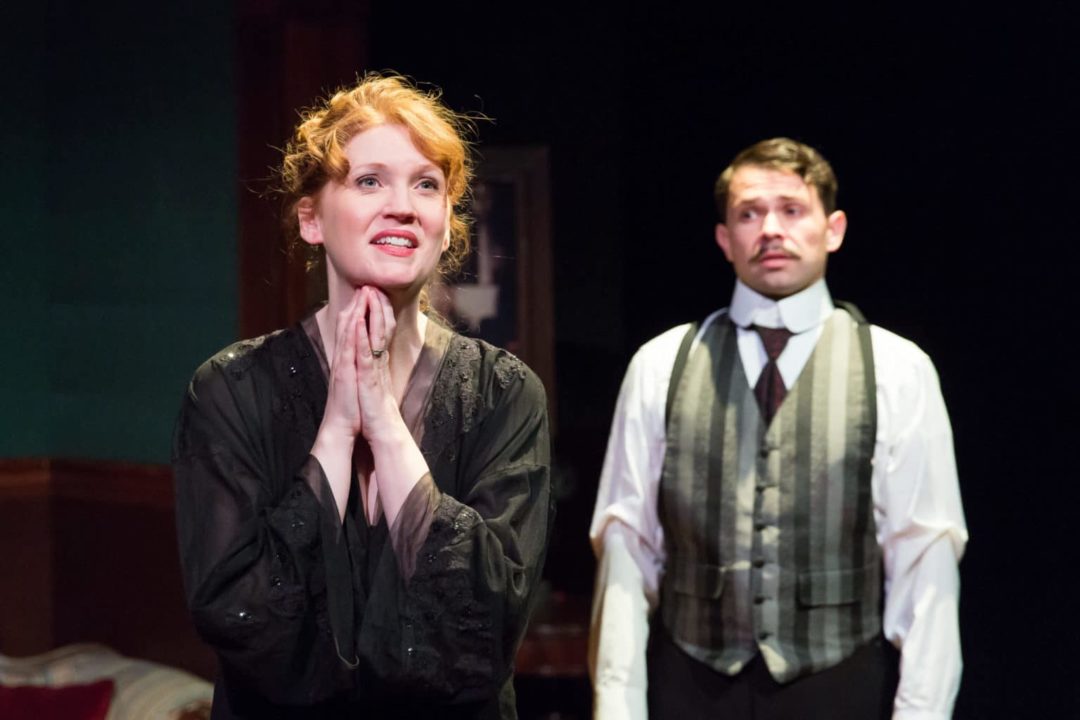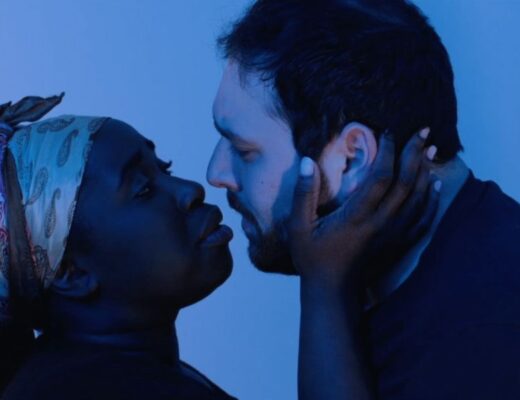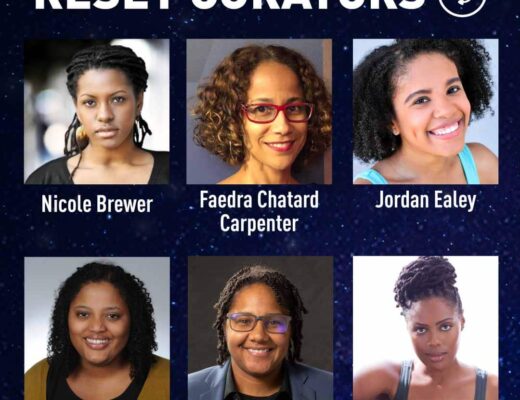By Mercedes Hesselroth
This article was first published in DC Theatre Scene here.
Irish author James Joyce unfairly gets a bad rap for being “too difficult” to read. His first draft of A Portrait of the Artist as a Young Man was rejected with a note from the editor saying “I can’t print what I can’t understand.” Joyce’s last and most ambitious work, Finnegans Wake, is often said to require a second book, A Skeleton Key to Finnegans Wake by Joseph Campbell and Henry Morton Robinson, to be read in tandem if one has any hope of understanding the heavily experimental writing style.
Most appraisals of his incomprehensibility are exaggerations, but for those who want a lighter introduction to the world of Joyce, director Robert McNamara has selected James Joyce’s The Dead as Scena Theatre’s holiday show. The musical is a Tony Award-winning adaptation of the final installment in Joyce’s short story collection Dubliners, in many ways a prequel to his best-known tome Ulysses. Joyce’s literary admirer T.S. Eliot called The Dead “the finest” of all the stories in the collection, and perhaps of any short story ever written. Like Joyce’s other writing, The Dead focuses on the everyday people of early 20th-century Ireland and their search for meaning in the face of mortality.
Gabriel Conroy (Louis Lavoie) and his wife Gretta (Danielle Davy) attend a Christmas party at the home of Aunts Kate and Julia Morkan (Rosemary Regan and Andrea Hatfield, respectively). But over the course of the evening, lost love, failed careers, and family secrets threaten the joyfulness of the proceedings. Most problems with the show come from the process of adaptation and are unavoidable for any production. For one, there are twice as many characters than necessary (13 in total), which prevents several of the party guests from having any discernible arcs and leaves cast members cramped into various corners of the stage. Just as Joyce’s writing alternates between the planes of realism and symbolism, this production also mills between a natural and a constructed world.
As such, many of the songs come stacked in rapid succession at the beginning of the show. Less than a breath after finishing their own number, the characters immediately cajole another partygoer into performing. Though this series of songs interrupts all the conversations we just got a peek into, the majority of these threads are dropped entirely and don’t impact the ending of the show. Almost as soon as he arrives, Gabriel is told off by the Jo March-like Molly Ivers (Mo O’Rourke) for writing at a pro-English newspaper, but their debate about the future of Irish sovereignty never reaches a full conclusion. Aunt Kate insults the maid Lilly (Emily K. Collins) at dinner – implying she’s on the verge of hiring someone new in her place – but this tension never resurfaces.
The songs themselves are adeptly accompanied by music director Greg Watkins on keyboard. James Joyce’s The Dead has never received an official wide release cast album, but one wonders if the emotional resonance of the songs would have been clearer with more musicians supporting the cast.
Irish author James Joyce unfairly gets a bad rap for being “too difficult” to read. His first draft of A Portrait of the Artist as a Young Man was rejected with a note from the editor saying “I can’t print what I can’t understand.” Joyce’s last and most ambitious work, Finnegans Wake, is often said to require a second book, A Skeleton Key to Finnegans Wake by Joseph Campbell and Henry Morton Robinson, to be read in tandem if one has any hope of understanding the heavily experimental writing style.
Most appraisals of his incomprehensibility are exaggerations, but for those who want a lighter introduction to the world of Joyce, director Robert McNamara has selected James Joyce’s The Dead as Scena Theatre’s holiday show. The musical is a Tony Award-winning adaptation of the final installment in Joyce’s short story collection Dubliners, in many ways a prequel to his best-known tome Ulysses. Joyce’s literary admirer T.S. Eliot called The Dead “the finest” of all the stories in the collection, and perhaps of any short story ever written. Like Joyce’s other writing, The Dead focuses on the everyday people of early 20th-century Ireland and their search for meaning in the face of mortality.
But over the course of the evening, lost love, failed careers, and family secrets threaten the joyfulness of the proceedings. Most problems with the show come from the process of adaptation and are unavoidable for any production. For one, there are twice as many characters than necessary (13 in total), which prevents several of the party guests from having any discernible arcs and leaves cast members cramped into various corners of the stage. Just as Joyce’s writing alternates between the planes of realism and symbolism, this production also mills between a natural and a constructed world.
As such, many of the songs come stacked in rapid succession at the beginning of the show. Less than a breath after finishing their own number, the characters immediately cajole another partygoer into performing. Though this series of songs interrupts all the conversations we just got a peek into, the majority of these threads are dropped entirely and don’t impact the ending of the show. Almost as soon as he arrives, Gabriel is told off by the Jo March-like Molly Ivers (Mo O’Rourke) for writing at a pro-English newspaper, but their debate about the future of Irish sovereignty never reaches a full conclusion. Aunt Kate insults the maid Lilly (Emily K. Collins) at dinner – implying she’s on the verge of hiring someone new in her place – but this tension never resurfaces.
The songs themselves are adeptly accompanied by music director Greg Watkins on keyboard. James Joyce’s The Dead has never received an official wide release cast album, but one wonders if the emotional resonance of the songs would have been clearer with more musicians supporting the cast.
Davy delivers the strongest vocal performance of the night, singing of a distant memory in “Goldenhair” and relaying the story of her first love to Gabriel in “Michael Furey.” Lavoie also serves as an able narrator, guiding the audience through the offstage action of the play.
All together the cast builds a believable camaraderie, the kind of laughter between old friends potent enough to make you forget what was so funny in the first place. Like the characters, this feeling of community is all one can hope for during the holidays while we celebrate loved ones past and present, as well as those we have yet to meet.





No Comments